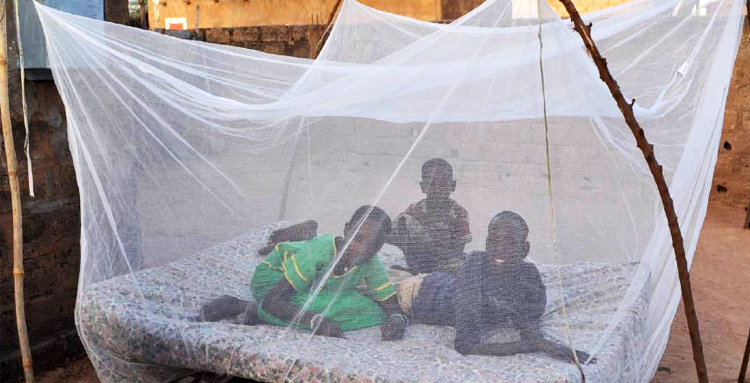At an event on the eve of World Malaria Day in Nairobi, WHO called for accelerated scale-up of efforts to prevent malaria and save lives.
In sub-Saharan Africa, which shoulders 90% of the global malaria burden, more than 663 million cases have been averted since 2001. Insecticide-treated nets have had the greatest impact, accounting for an estimated 69% of cases prevented through control tools.
In South Sudan, all the stake holders have tried their level best to make sure that the deadly malaria disease is averted with all possible measures. The Ministry of health and World Health Organization (WHO) are working hand in hand with other partners who are implementing projects in the areas of health to reach down to the grass root to provide preventative measures like Treated Mosquito nets, spraying bushes around the communities that would act as breeding place for mosquitos.
Within the communities, people are being encouraged to take on measure that can fight the cause of malaria like draining stagnant water, clearing bushes and also taking proper medical treatment to avoid re-occurrences of malaria among others.
The prevail economic hardship in South Sudan leaves a lot to be desired, as the common man is struggling to put food on the table, it becomes extremely hard for one to get proper medical care if they can’t afford expected daily bread or put food on the table. In areas with insecurities where people have left their homes and living in the bushes, one wonders how access to medical care can be made possible for them given the fact that some areas have no access to aid from the humanitarians on ground who are trying to access the areas. This has been attributed to the fact that humanitarian staffs have lost their lives in an attempt to deliver aid in areas that is expected of them.
Hold the Child, one of the humanitarian and development Organization on ground with presence in 10 different locations across South Sudan, through their program of community health has been working hand in hand with other partners to provide aid, empower the people who are in dire need and support in order to survive and live a healthy life.
Any death from malaria – a preventable and treatable disease – is simply unacceptable,” said Dr Pedro Alonso, Director of WHO’s Global Malaria Programme. “Today we are urging countries and partners to accelerate the pace of action, especially in low-income countries with a high malaria burden.
In May 2015, the World Health Assembly approved WHO’s Global Technical Strategy for Malaria 2016–2030, a 15-year blueprint for all countries working to control and eliminate malaria. The strategy set ambitious targets for 2030, including reducing malaria case incidence and death rates by at least 90%, eliminating malaria in at least 35 countries, and preventing the reintroduction of malaria in all countries that are malaria free.
Photo credit: Poac.org

